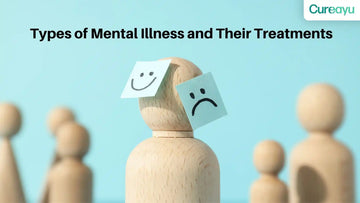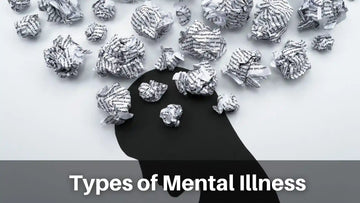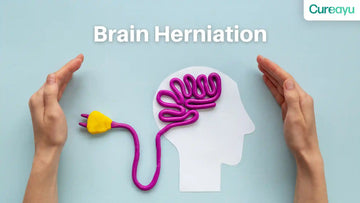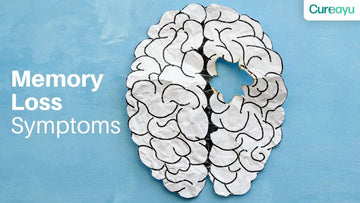Mental illness is a broad term that encompasses a wide range of mental health conditions that affect an individual's mood, thinking, and behavior. These conditions can have a significant impact on daily life, relationships, and overall well-being. Mental illnesses are more common than many people realize, affecting millions of individuals worldwide. Despite their prevalence, mental health conditions are often misunderstood or stigmatized, leading to a lack of proper care and support for those who suffer from them.
Understanding the different types of mental illness, their symptoms, causes, and treatment options is crucial for promoting mental health awareness and ensuring that those affected receive the help they need. This blog will explore various types of mental illness, providing detailed information on the symptoms, causes, complications, and available treatments to offer a comprehensive guide on this important topic.
Also Read: How Meditation for Anxiety Can Help You Achieve Peace of Mind and Emotional Balance
What Is Mental Illness?
Mental illness refers to a range of mental health disorders that affect an individual's emotional, psychological, and social well-being. These disorders can disrupt a person’s ability to function in everyday life, impacting their relationships, work, and overall quality of life. Mental illnesses vary in severity and duration, with some conditions being chronic and others episodic.
Mental health disorders can affect anyone, regardless of age, gender, race, or socioeconomic status. The onset of mental illness can be triggered by various factors, including genetics, environmental influences, trauma, and chemical imbalances in the brain. It’s important to recognize that mental illness is not a sign of weakness or a character flaw; it is a medical condition that requires appropriate treatment and support.
Mental Illness Symptoms
- Mood Changes: Sudden or extreme changes in mood, such as prolonged sadness, irritability, or excessive euphoria, can be indicative of a mental health disorder. Mood swings can affect daily functioning and relationships.
- Anxiety and Worry: Persistent feelings of anxiety, worry, or fear, especially when they are disproportionate to the situation, can be a symptom of an anxiety disorder. This may include panic attacks, phobias, or social anxiety.
- Depression: A prolonged feeling of sadness, hopelessness, or a lack of interest in activities once enjoyed can be a sign of depression. Depression can also manifest as changes in sleep patterns, appetite, and energy levels.
- Confusion and Disorganization: Difficulty concentrating, making decisions, or following a logical thought process can be symptoms of a mental health disorder such as schizophrenia or bipolar disorder.
- Social Withdrawal: Avoiding social interactions, withdrawing from friends and family, or losing interest in social activities can indicate a mental health issue such as depression or anxiety.
- Sleep Disturbances: Changes in sleep patterns, such as insomnia or excessive sleeping, can be symptoms of mental health disorders like depression, anxiety, or bipolar disorder.
- Substance: Abuse Using alcohol, drugs, or other substances as a coping mechanism for emotional pain or distress can be a sign of an underlying mental health issue.
- Hallucinations or Delusions: Experiencing hallucinations (seeing or hearing things that aren’t there) or delusions (false beliefs) is often associated with severe mental health disorders like schizophrenia.
- Physical Symptoms: Mental illness can also manifest through physical symptoms such as headaches, stomachaches, or unexplained aches and pains, often linked to stress or anxiety.
Also Read: Understanding Depression Symptoms: Identifying Signs to Seek Help and Improve Mental Health
Causes of Mental Illness
- Genetic Factors: A family history of mental illness can increase the likelihood of developing a mental health disorder. Genetics can influence brain chemistry and the likelihood of certain mental health conditions.
- Biological Factors: Chemical imbalances in the brain, particularly involving neurotransmitters like serotonin and dopamine, are known to play a role in mental health disorders such as depression and anxiety.
- Environmental Stressors: Stressful life events, such as trauma, abuse, loss of a loved one, or significant life changes, can trigger the onset of mental illness in individuals who may be predisposed.
- Psychological Factors: Personality traits, such as perfectionism, low self-esteem, or a tendency toward pessimism, can contribute to the development of mental health disorders.
- Chronic Medical Conditions: Chronic illnesses such as diabetes, heart disease, or chronic pain can lead to mental health issues due to the stress and lifestyle changes associated with managing these conditions.
- Substance Abuse: Long-term substance abuse can alter brain chemistry and increase the risk of developing mental health disorders such as anxiety, depression, or psychosis.
- Childhood Experiences: Adverse childhood experiences, including neglect, abuse, or exposure to violence, can have a long-term impact on mental health, increasing the risk of disorders later in life.
Complications and When To See a Doctor
- Suicidal Thoughts or Behavior: If you or someone you know is experiencing suicidal thoughts, seek immediate medical attention. This is a medical emergency and requires prompt intervention.
- Inability to Function in Daily Life: If mental health symptoms interfere with your ability to work, go to school, or maintain relationships, it’s important to see a doctor.
- Severe Mood Swings: Extreme mood changes that affect your behavior or decision-making warrant a consultation with a mental health professional.
- Self-Harm: Engaging in self-harm, such as cutting or burning, is a sign of serious mental distress and requires immediate medical attention.
- Substance Abuse: If you are using drugs or alcohol to cope with emotional pain, it’s important to seek help from a medical professional.
- Persistent Symptoms: If symptoms of mental illness persist for weeks or months and do not improve with self-care, it’s time to seek professional help.
Also Read: 15 Best Brain Boosting Foods to Enhance Cognitive Function and Memory
Treatment for Mental Illness
- Psychotherapy: Also known as talk therapy, psychotherapy involves working with a mental health professional to address the thoughts, feelings, and behaviors associated with mental illness. Cognitive-behavioral therapy (CBT) and dialectical behavior therapy (DBT) are common approaches.
- Medication: Medications such as antidepressants, antianxiety drugs, antipsychotics, and mood stabilizers can help manage the symptoms of mental illness. It’s important to work with a healthcare provider to find the right medication and dosage.
- Lifestyle Changes: Regular exercise, a balanced diet, adequate sleep, and stress management techniques can significantly improve mental health. Incorporating mindfulness practices, such as meditation or yoga, can also be beneficial.
- Support Groups: Joining a support group provides an opportunity to connect with others who are experiencing similar challenges. Support groups offer a sense of community and shared understanding, which can be very therapeutic.
- Hospitalization: In severe cases, hospitalization may be necessary to ensure the safety of the individual and provide intensive treatment. This is often required for those experiencing suicidal thoughts, severe depression, or psychosis.
Also Read: Refresh Your Mental Palette: Top 10 Ways to Achieve Mind Detox
Conclusion
Mental illness is a complex and multifaceted condition that affects millions of people globally. It is essential to recognize that mental health is just as important as physical health, and seeking treatment is a critical step in managing and overcoming these conditions. Understanding the different types of mental illness, their symptoms, causes, and available treatments can help reduce stigma and promote early intervention. With the right support, individuals with mental illness can lead fulfilling and productive lives. If you or someone you know is struggling with mental health issues, don’t hesitate to seek professional help. Early diagnosis and treatment can make a significant difference in recovery and overall quality of life.












